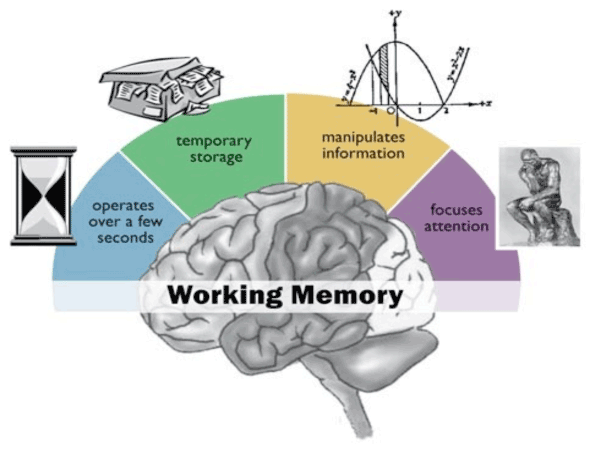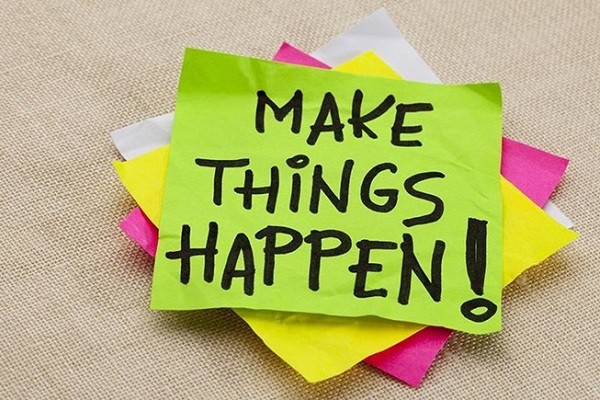I’ll Do It Later . . .
by Dr. Liz, December 12, 2021


Do you put off tasks until the last minute? You are not alone. Research shows that about 90% of college students procrastinate while reading, writing, or studying. Between 33-50% of undergraduates report being “chronic procrastinators,” spending less time researching information required to perform tasks and underestimating how long it takes to complete assignments. Procrastination affects the “quantity and quality of work completed and is associated with lower exam scores, lower quality papers/projects, late/missing assignments, and poor study skills” (Bolden & Fillauer, 2020). Procrastination is a powerful thing, especially for those with ADHD.
Procrastination and ADHD
 While everyone procrastinates sometimes, it is more extreme, more frequent, and especially detrimental to
people with ADHD (Petersen, 2019). With ADHD, procrastination “comes layered with guilt and humiliation and
an intuitive sense that you are letting others down” (Ratey, 2008, p. 114).
While everyone procrastinates sometimes, it is more extreme, more frequent, and especially detrimental to
people with ADHD (Petersen, 2019). With ADHD, procrastination “comes layered with guilt and humiliation and
an intuitive sense that you are letting others down” (Ratey, 2008, p. 114).
People with ADHD have deficits in “working memory” – where the brain stores and manages information for
short periods. This means they more easily forget deadlines and the consequences of missing those deadlines
(Ratey, 2008). For example, you put off doing an assignment until the last minute. You stay up late, have
too much to do, and cannot do your best work. If you earn a good grade anyway, you tell yourself there’s
no need to plan ahead to complete assignments. If you earn a poor grade, you tell yourself it was because
of the time constraint, not you. Seeing no real consequences to your procrastination, you will do it over
and over, using it as a strategy, convincing yourself that it works (Branstetter, 2014).
Why We Procrastinate
ADHD can make you an expert in avoiding tasks you do not want to do. Here are some reasons you may be procrastinating:
- Looking for instant gratification. Your brain wants dopamine. You would rather do something fun than something necessary. Distractions like social media, YouTube, a shopping trip, or visiting friends are more exciting than your history homework.
- Looking for answers. You don’t understand the assignment. You can’t find the instructions. You didn’t take clear notes. Basically, you don’t know what to do and you are stuck. You don’t know how long it will take so you don’t know if you’ve left yourself enough time.
- Looking for perfection. You can’t start studying until your room is clean or your head is in a better place or after you eat or work out. You wait for the perfect time to start and it never arrives or arrives too late to do your best work. Often times you worry so much about doing a perfect job that you can’t start started, or you get stuck, because you are critical of yourself and your abilities.
- Looking at the past. You scored poorly on the last quiz. It took much too long to complete the last assignment. You never turned in the last homework. You have negative feelings about tasks based on past experiences and you don’t see how things can change. Your fears, worries, and anxiety about past situations or outcomes stop you from starting (Silney, 2021).
- Looking past deadlines. The quiz is next week, so you don’t have to worry about it until then. You were assigned the project the first week of class, with a due date of the last week of class. It doesn’t even enter your mind until the deadline is imminent. Now you have one week (or less) to start and finish what you could have been working on all semester.
- Looking at options. You have too many choices to consider. Too many decisions to make. You are overwhelmed by planning, organizing, and prioritizing. You get frozen and can’t move forward.
It takes practice to overcome procrastination, but it is possible with the right strategies.
Strategies to Stop Procrastinating
- Make boring tasks more appealing. Add movement by walking around while you read or cycling while you listen to a podcast or audiobook. Reduce distractions by turning off your phone and closing all those open browser tabs. Use a timer to track the passage of time. Work on a boring but necessary task for 10 or 15 minutes. Take a short break when the timer goes off. Time how long it takes to complete one problem or read one page of text. That makes it easier to realistically estimate how long you need to complete all the problems or read the entire chapter. Make a game of it, trying to beat your time on the next problem or finish reading a certain number of pages in a limited amount of time.
- Ask for help. Text a classmate about something unclear in your notes. Email the teacher to get clarification about instructions. Go to office hours to get help or work on assignments. Visit learning centers for specific help with writing, researching, math, English, or whatever. Try peer tutoring. Talk to disability services staff. Meet with an academic or ADHD coach.
- Admit that perfection is unachievable. The best assignment is a completed assignment. Make it “more perfect” AFTER you’ve completed it IF you have the time. Doing the same chemistry problem several times because your answer doesn’t match any of the multiple-choice options? Let it go and move on to the next problem. Come back when and if you have time.
- Visualize success. If you failed the last quiz or forgot about the last homework, that was then, this is now. Visualize yourself doing a great job, finishing on time, earning a good grade. Visualize the positive emotions you will feel when you are done and successful. It’s a new day!
- Create a schedule. Don’t rely on your memory, use typed or written lists. Schedule everything – meals, workouts, showers, classes, travel time, work, sleep, etc. – then see how much time is left and schedule studying and assignments. When you receive a course syllabus, schedule all deliverables! Prioritize tasks by due dates. Check your schedule every day.
- Outsmart the Overwhelm. Break big tasks into smaller pieces and work on one small task at a time. You don’t have to write the whole paper, just write the thesis statement. You don’t need to do 20 math problems all at once, just start by completing one. Accomplishing little tasks helps you feel successful and able to move on to other small tasks. You’ll get on a roll and those small tasks will add up to completion of the larger task.
Getting It Done
 To deal with procrastination, practice strategies that work for you and the particular task. It will be hard
at first because your ADHD brain may try and convince you to do something else or to give up. Hang in there,
you can do it! Reward yourself for your accomplishments, even small ones. Forgive yourself when you slip up.
And if a task takes less than two minutes, do it right away!
To deal with procrastination, practice strategies that work for you and the particular task. It will be hard
at first because your ADHD brain may try and convince you to do something else or to give up. Hang in there,
you can do it! Reward yourself for your accomplishments, even small ones. Forgive yourself when you slip up.
And if a task takes less than two minutes, do it right away!
Sources:
Bolden, J., & Fillauer, J. (2020). "Tomorrow is the busiest day of the week": Executive functions mediate the relation between procrastination and attention problems.
Journal of American College Health, 68(8), 854-863. doi:10.1080/07448481.2019.1626399
Branstetter, R. (2014). The Everything Parents Guide to Children with Executive Functioning Disorder . Avon, MA: F+W Media, Inc.
Petersen, N. (2019, March 18). ADHD or Normal Procrastination? Retrieved from PsychCentral: https://psychcentral.com/blog/adhd-millennial/2019/03/adhd-or-normal-procrastination?c=676319832637#1
Ratey, N. A. (2008). The Disorganized Mind: Coaching Your ADHD Brain to Take Control of Your Time, Tasks, & Talents. New York: St. Martin's Griffen.
Silney, J. (2021, June 3). What Stops Me From Starting? Retrieved from ADDitude Magazine: https://www.additudemag.com/why-do-i-procrastinate/
Images:
Student playing computer game instead of studying: https://scotscoop.com/utilizing-old-habits-the-applications-of-procrastination/
Working memory: https://projects.iq.harvard.edu/cognitive-enhancement/resources
Make Things Happen: https://medium.com/@gunjan_31067/getting-things-done-on-time-and-well-only-take-a-little-creativity-c515e525e361
Specific questions and topic suggestions can be emailed to questions@ADHDinCollege.com.